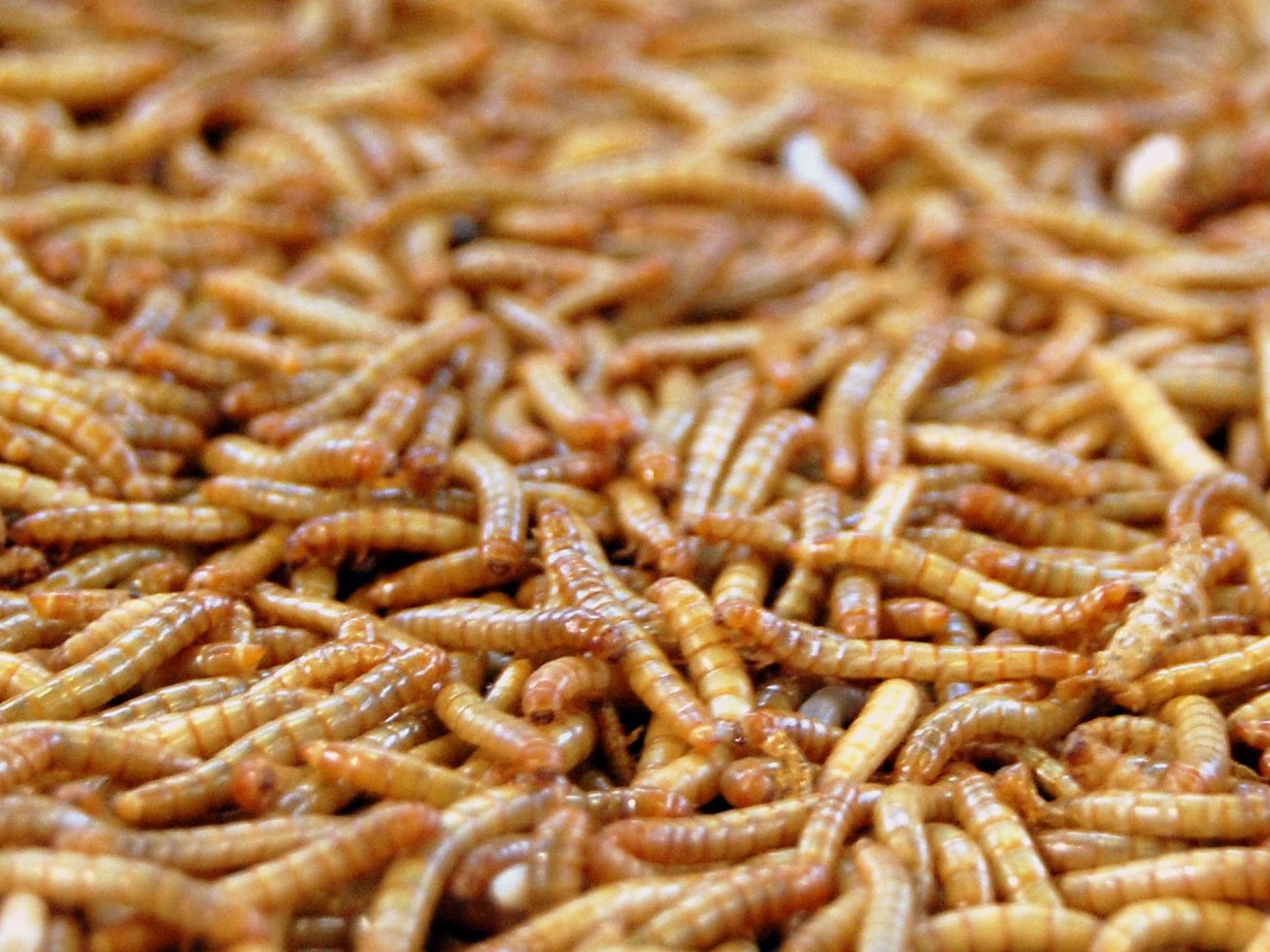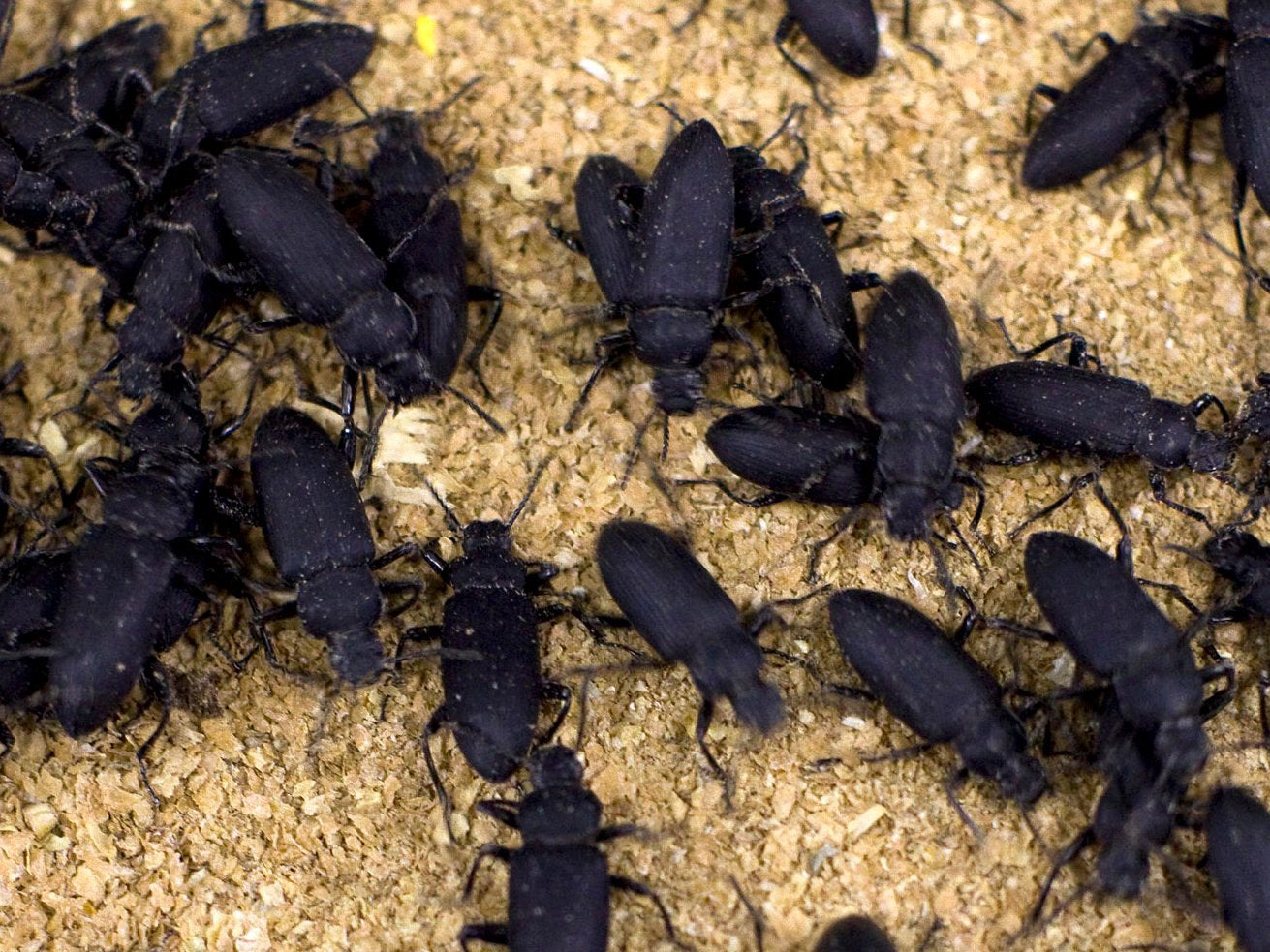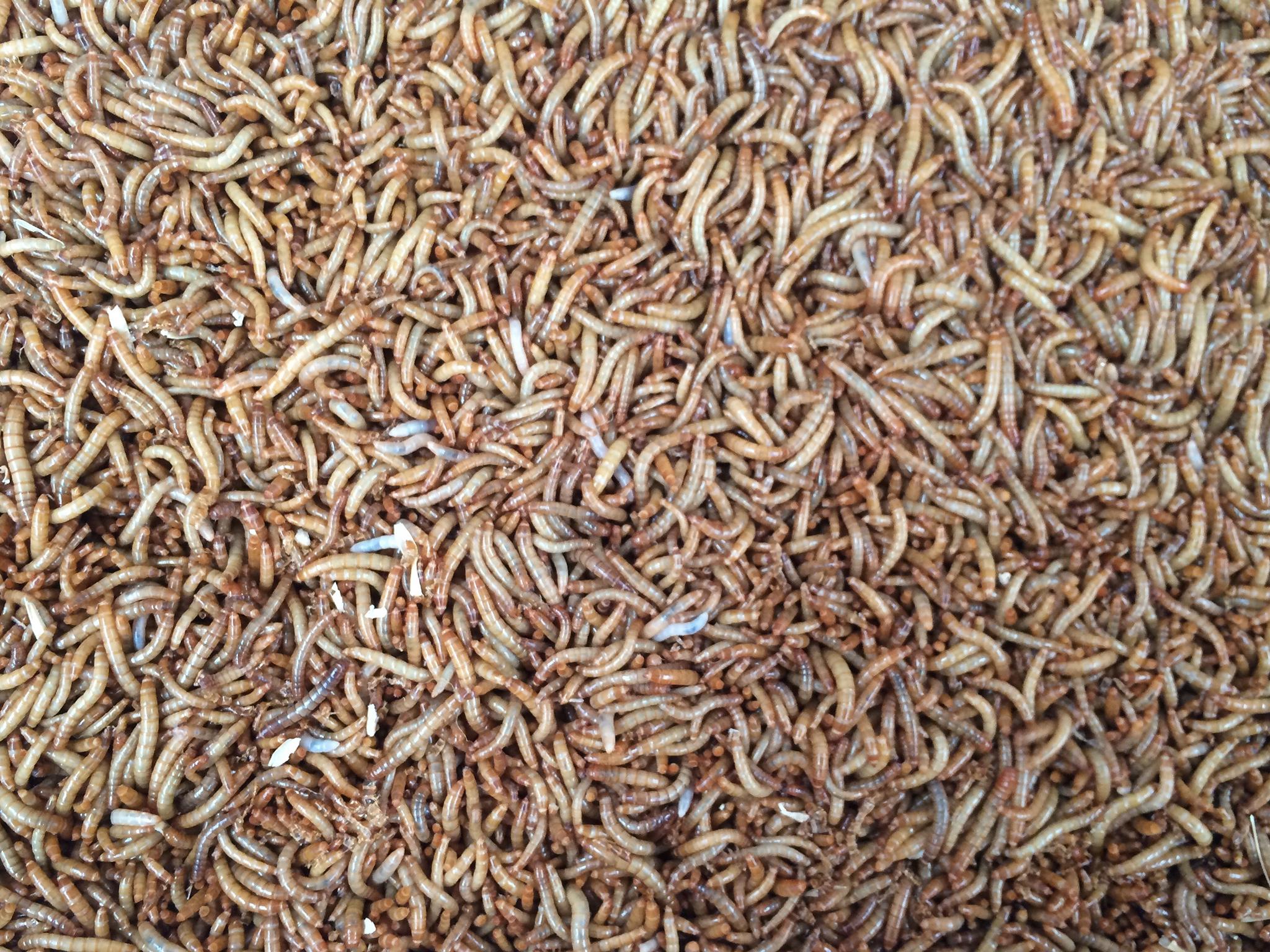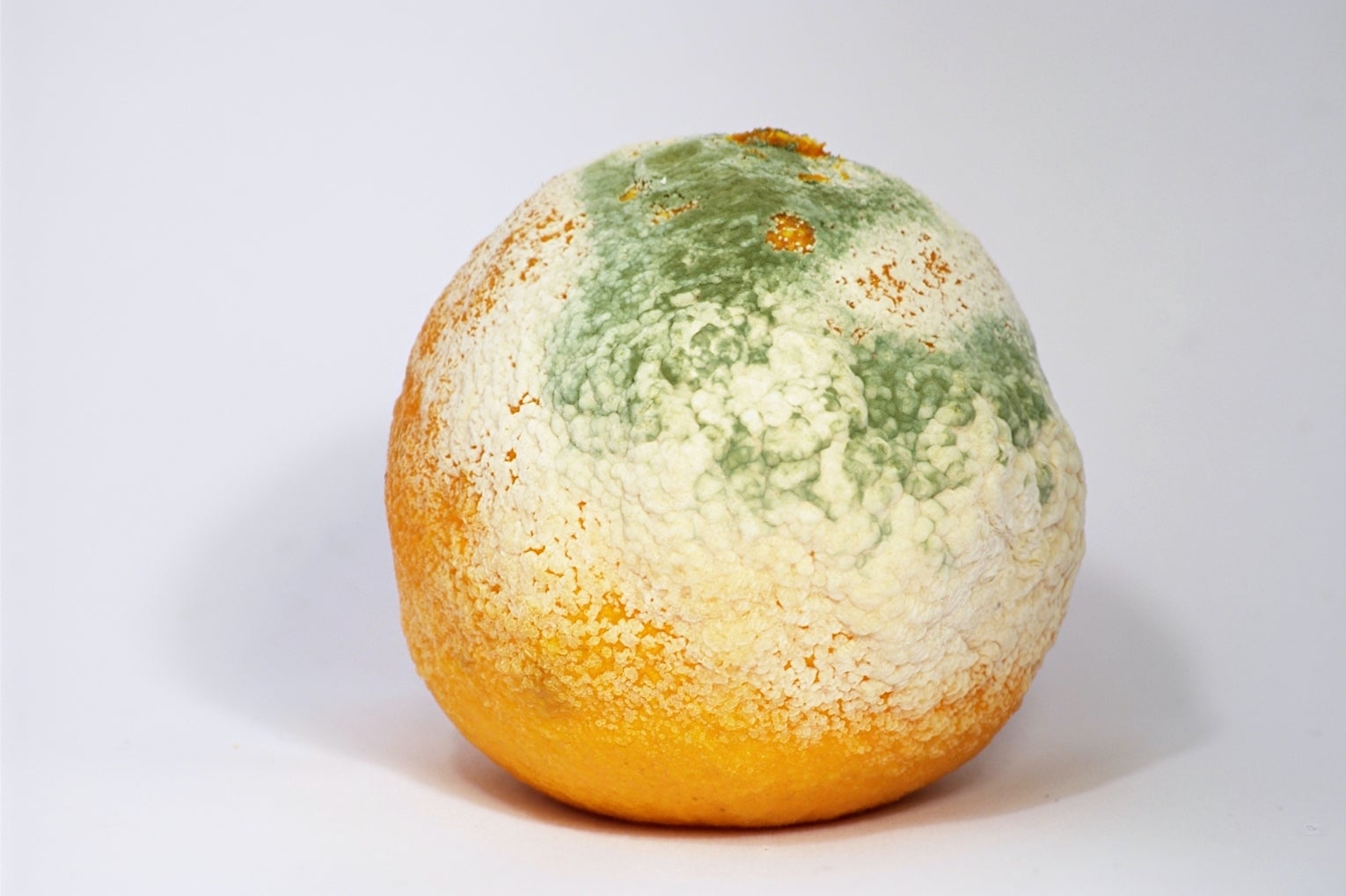Fears rat hair, maggots and mould might start appearing in British food following post-Brexit trade deal
US Trade Representative said it was ‘concerned’ about EU measures for ‘food safety and protecting human, animal, or plant life or health’
Your support helps us to tell the story
From reproductive rights to climate change to Big Tech, The Independent is on the ground when the story is developing. Whether it's investigating the financials of Elon Musk's pro-Trump PAC or producing our latest documentary, 'The A Word', which shines a light on the American women fighting for reproductive rights, we know how important it is to parse out the facts from the messaging.
At such a critical moment in US history, we need reporters on the ground. Your donation allows us to keep sending journalists to speak to both sides of the story.
The Independent is trusted by Americans across the entire political spectrum. And unlike many other quality news outlets, we choose not to lock Americans out of our reporting and analysis with paywalls. We believe quality journalism should be available to everyone, paid for by those who can afford it.
Your support makes all the difference.Insect-filled chocolates, rat hair-infested noodles, and orange juice containing maggots are just some of the “horrors” UK consumers could be forced to accept if post-Brexit Britain signs a wide-ranging trade deal with the USA.
In the US, producers adhere to a “Defects Levels Handbook,” which sets out the maximum number of foreign bodies like maggots, insect fragments and mould that can be in food products before they are put on the market.
For example, US producers are allowed to include up to 30 insect fragments in a 100g jar of peanut butter; as well as 11 rodent hairs in a 25g container of paprika; or 3mg of mammalian excreta (typically rat or mouse excrement) per each pound of ginger.
In the EU there are no allowable limits for foreign bodies in food products.
MPs told Business Insider they are worried that a UK-US trade deal designed by Brexiteers could open the floodgates to contaminated food.
“Clearly, The Tories have some very unpleasant surprises for UK dinner tables if they have their way with a fast-track trade deal with the United States,” Bill Esterson, the shadow trade minister, said.
“We know the Tories are keen on chlorine-washed chicken and hormone-fed beef but they surely cannot expect that the British public will be happy to swallow these other horrors.”
Caroline Lucas, ex-leader of the Green party and supporter of the People's Vote campaign, added: “This is the gruesome reality of the US trade deal being touted by Liam Fox as one of the great benefits of leaving the EU.
“Under the government's disastrous Brexit, we will finally be free to eat all the maggot-ridden food we like. No-one voted for a Brexit that waters down the safety and hygiene of our food - but that's what the government is pursuing.”
'The US actively dislikes many existing EU measures'
Trade secretary Liam Fox has denied the UK will lower its food standards after Brexit, but has not ruled out changing standards in order to strike new trade deals with countries around the world.
However, Sam Lowe, a trade specialist at the Centre For European Reform, predicted that the US would want the UK to move away from EU food standards and much closer to its own in any future free trade deal negotiation.
“The US actively dislikes many existing EU measures and will certainly pressurise the UK to jettison many of them in any FTA negotiations with the UK,” Mr Lowe told Business Insider.
He was echoed by a former US Treasury official, who told Business Insider: “Agriculture punches well above its commercial weight in trade negotiations. The prospect of agricultural exports to the UK would be a major US objective in FTA talks.”
US officials have been clear that the UK would need to change many of its rules and standards in order to sign an expansive free trade agreement with Washington, particularly in areas of sanitary and phytosanitary.
Wilbur Ross, Donald Trump's secretary of commerce, said last October that scrapping strict EU standards in areas like food hygiene and agriculture would be a “critical component” to any post-Brexit UK-UK free trade deal.
Earlier this year, the US administration's trade representative (USTR) produced a 500-page wish list of what it would like to see included in a new free trade agreement with Britain after it has left the EU.
The report said the US was “concerned” about EU measures for “food safety and protecting human, animal, or plant life or health,” and called for the UK to ditch these strict European rules after Brexit to liberate UK-US trade.
A spokesperson for the Department for International Trade said: “We have been clear we will not lower food, animal welfare or environmental standards as part of any free trade agreement.
“To suggest otherwise is completely false. Maintaining them is the right thing to do for our consumers and maintains the UK’s world-renowned reputation for high-quality products.”
So what surprises could UK consumers expect to find in food imported from the US after Brexit?
Rat hair and faeces

US food law allows traces of rodent in a variety of foods. For example, producers are allowed up to 11 rodent hairs per 25 grams of paprika and cinnamon; 4.5 hairs per 225 grams of noodles; and 4 hairs per 25 grams of curry powder.
It's not just hair. US producers will also get away with mammalian excreta (mammal faeces) in their food, usually from rodents. You could find up to 3 milligrams per pound of ginger and 10 milligrams per pound of cocoa beans.
Maggots

A UK-US free trade deal could lead to maggots hiding in some of your favourite food products. US producers are currently allowed one maggot per 250 millilitres of citrus juice — like orange and apple juice — and two per 100 grams of tomato juice.
You could also find two maggots for every 100 grams of the tomato paste used on pizzas.
Insects

In the US, the law allows up to 30 insect fragments per 100 grams of peanut butter; 60 insect fragments per 100 grams of chocolate; and up to 100 per 10 grams of nutmeg.
Worms

The US also allows worms and caterpillars in food products. However, there are rules.
For example, only three per cent of canned peaches and five per cent of currants can be infested with or eaten into by worms.
US producers are allowed two spinach worms (caterpillars) which are longer than 12mm per 24 pounds of the plant.
Mould

According to the US' Food Defeat Handbook, mould is an acceptable feature of a wide variety of food. A quarter of salt-cured olives per batch put on the market are allowed to be mouldy, for example. As are 20 per cent of canned pineapple segments, and 15 per cent of cranberry sauce.
Business Insider
Read more:
• This chart is easy to interpret: It says we're screwed
• How Uber became the world's most valuable startup
• These 4 things could trigger the next crisis in Europe
Read the original article on Business Insider UK. © 2016. Follow Business Insider UK on Twitter.

Join our commenting forum
Join thought-provoking conversations, follow other Independent readers and see their replies
Comments